-
 Tips and Tools: Hand Care for PottersIt’s critical to take care of your most important tools—your hands. Stretches, lotion, and more are advised for longevity.
Tips and Tools: Hand Care for PottersIt’s critical to take care of your most important tools—your hands. Stretches, lotion, and more are advised for longevity. -
 Techno File: Refractories 102We continue our look at refractory materials and discover the properties and differences of insulating kiln bricks and insulating ceramic fibers.
Techno File: Refractories 102We continue our look at refractory materials and discover the properties and differences of insulating kiln bricks and insulating ceramic fibers. -
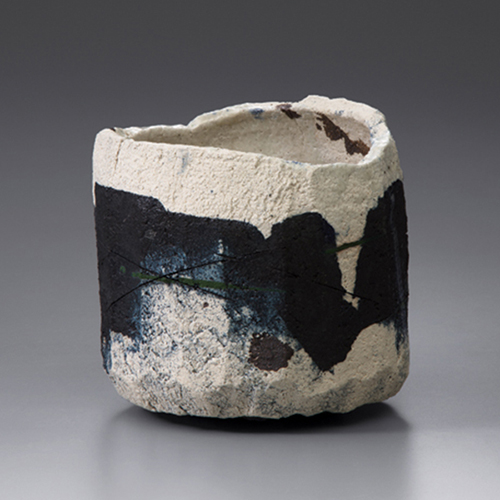 Review: Black Raku and Its ColorsAn exhibition at Annely Juda Fine Art in London, England, paired teabowls by Raku Kichizaemon with nonobjective works by Kazimir Malevich in order to explore perceptions of line, form, and color.
Review: Black Raku and Its ColorsAn exhibition at Annely Juda Fine Art in London, England, paired teabowls by Raku Kichizaemon with nonobjective works by Kazimir Malevich in order to explore perceptions of line, form, and color. -
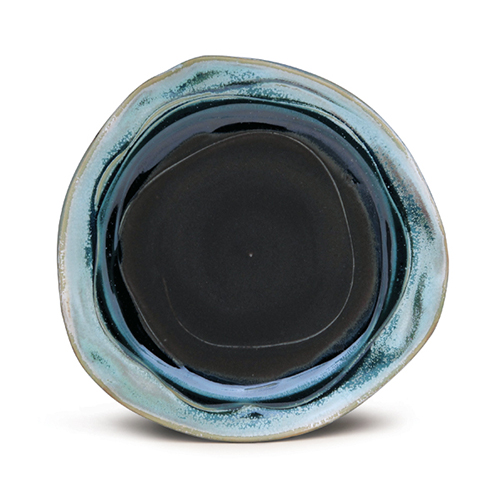 🎧 Working in the RoundRyan Coppage observes, with a nearly clinical methodology, how the central spiral visual cues of three wheel-thrown plate designs draw the viewer’s eye.
🎧 Working in the RoundRyan Coppage observes, with a nearly clinical methodology, how the central spiral visual cues of three wheel-thrown plate designs draw the viewer’s eye. -
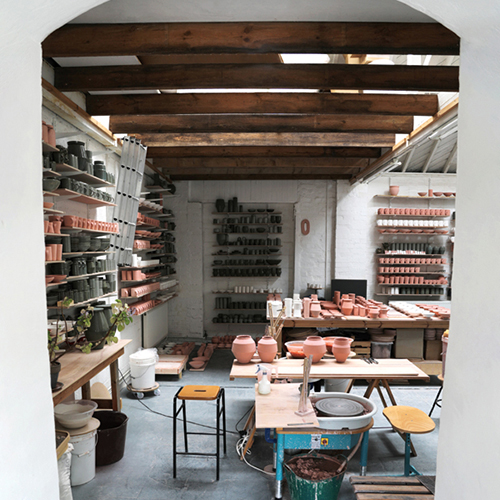 🎧 Working Artist: Florian GadsbyApprenticeships with one artist in the UK and another in Japan were transformational in shaping the way potter Florian Gadsby structures his studio and practice.
🎧 Working Artist: Florian GadsbyApprenticeships with one artist in the UK and another in Japan were transformational in shaping the way potter Florian Gadsby structures his studio and practice. -
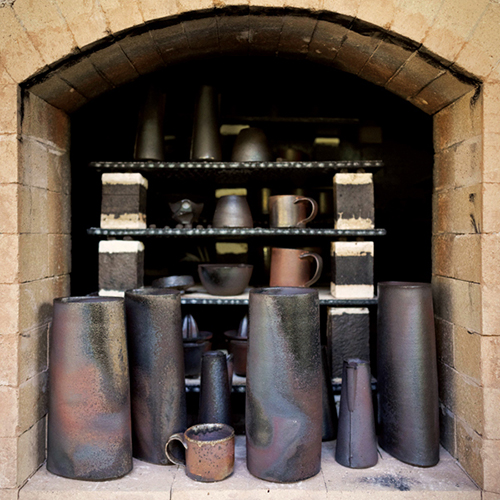 🎧 Surface: Traditions, Perceptions, and ChoicesA panel during the 2022 North Carolina Wood Fire Conference asked three artists to reflect on the many factors that impact their decisions in making and assessing surface.
🎧 Surface: Traditions, Perceptions, and ChoicesA panel during the 2022 North Carolina Wood Fire Conference asked three artists to reflect on the many factors that impact their decisions in making and assessing surface. -
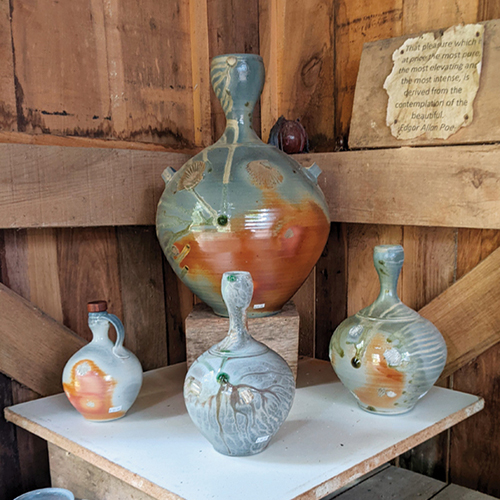 🎧 Enough Clay Through Your FingersAfter taking over the Goshen, Indiana, studio of Dick Lehman, Mark Goertzen continued the tradition of mentoring interns. The practice is mutually beneficial for the artists involved, and allows for productivity and growth.
🎧 Enough Clay Through Your FingersAfter taking over the Goshen, Indiana, studio of Dick Lehman, Mark Goertzen continued the tradition of mentoring interns. The practice is mutually beneficial for the artists involved, and allows for productivity and growth. -
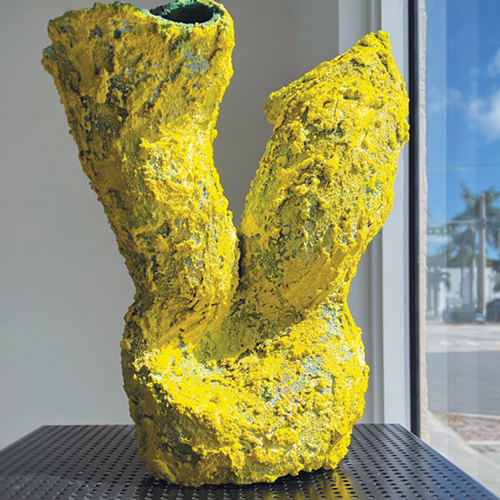 Studio Visit: Addison Wolff, Fort Lauderdale, FloridaAfter relocating to Florida, Addison Wolff found a small, private space in a communal art center to continue making handbuilt abstract sculptures with layered, textured colors.
Studio Visit: Addison Wolff, Fort Lauderdale, FloridaAfter relocating to Florida, Addison Wolff found a small, private space in a communal art center to continue making handbuilt abstract sculptures with layered, textured colors. -
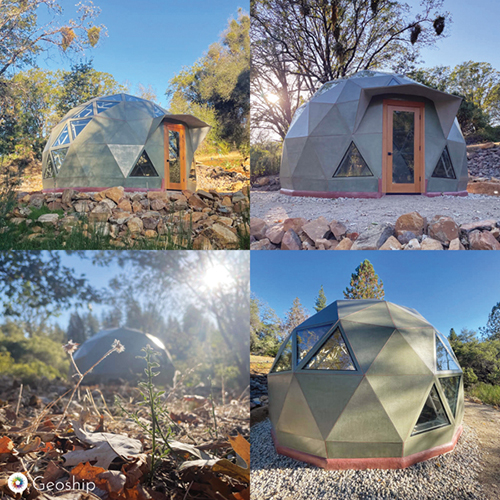 Clay Culture: The Future of Home BuildingMade of innovative bioceramic material and designed for resiliency in their surroundings, Geoship structures offer an ecologically minded alternative to traditional home building for the not-so-distant future.
Clay Culture: The Future of Home BuildingMade of innovative bioceramic material and designed for resiliency in their surroundings, Geoship structures offer an ecologically minded alternative to traditional home building for the not-so-distant future. -
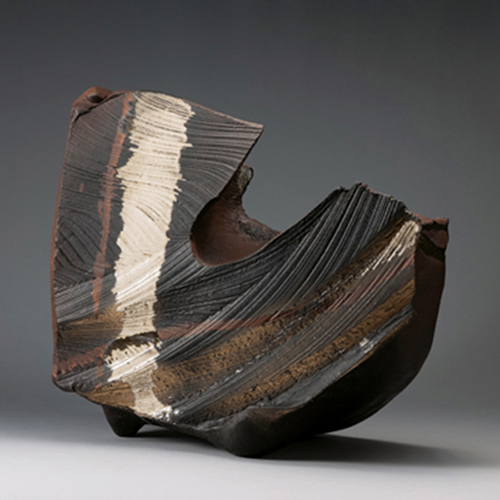 Exposure: January 2023Images from current and upcoming exhibitions.
Exposure: January 2023Images from current and upcoming exhibitions. -
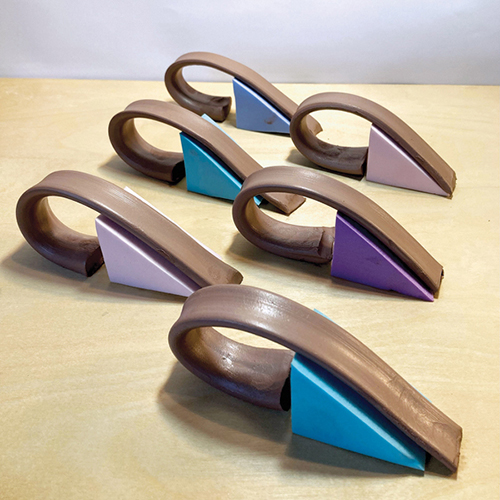 Quick Tip: Cosmetic Sponge for Handle SupportMaking handles can be a painstaking and frustrating part of the pottery process.
Quick Tip: Cosmetic Sponge for Handle SupportMaking handles can be a painstaking and frustrating part of the pottery process. -
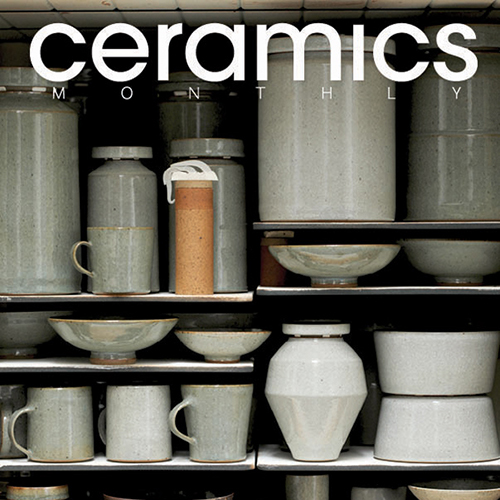 From the Editor: January 2023While this issue focuses on atmospheric-fired work, the artists’ mentoring, training, and rationale for using these methods to achieve a specific, personal aesthetic are central to the stories shared.
From the Editor: January 2023While this issue focuses on atmospheric-fired work, the artists’ mentoring, training, and rationale for using these methods to achieve a specific, personal aesthetic are central to the stories shared. -
 Supporters of Ceramics Monthly - January 2023
Supporters of Ceramics Monthly - January 2023 -
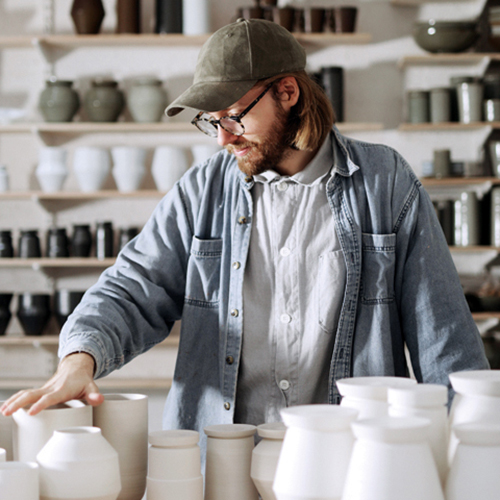 Spotlight: Form and FunctionFlorian Gadsby shares his approach to making functional pottery designed to be lived with.
Spotlight: Form and FunctionFlorian Gadsby shares his approach to making functional pottery designed to be lived with. -
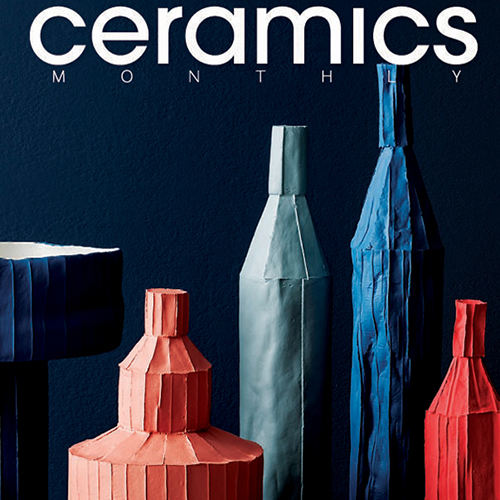 Supporters of Ceramics Monthly - December 2022
Supporters of Ceramics Monthly - December 2022 -
 Call for Entries: December 2022Information on submitting work for exhibitions, fairs, and festivals.
Call for Entries: December 2022Information on submitting work for exhibitions, fairs, and festivals. -
 Tips and Tools: Sharp Trimming ToolsKyle Guymon shares how to maintain an effective edge on your favorite trimming tool with a few passes on a sharpening stone before each use.
Tips and Tools: Sharp Trimming ToolsKyle Guymon shares how to maintain an effective edge on your favorite trimming tool with a few passes on a sharpening stone before each use. -
 Techno File: Kiln Furniture 101Learn why composition, flexural strength, and maximum working temperature are the most important things to pay attention to when buying and using kiln shelves.
Techno File: Kiln Furniture 101Learn why composition, flexural strength, and maximum working temperature are the most important things to pay attention to when buying and using kiln shelves. -
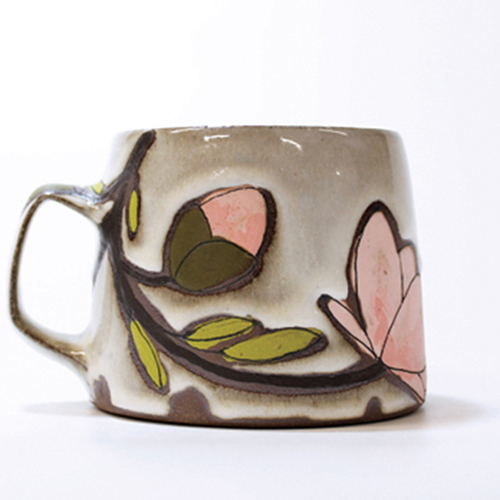 Bringing Joy to Life with Melissa Maya PotteryWorking in batches and retaining the marks of making, Maya Rumsey creates functional pottery decorated with color blocks and illustrations of magnolia blooms, houseplants, and the Victorian house where she grew up.
Bringing Joy to Life with Melissa Maya PotteryWorking in batches and retaining the marks of making, Maya Rumsey creates functional pottery decorated with color blocks and illustrations of magnolia blooms, houseplants, and the Victorian house where she grew up. -
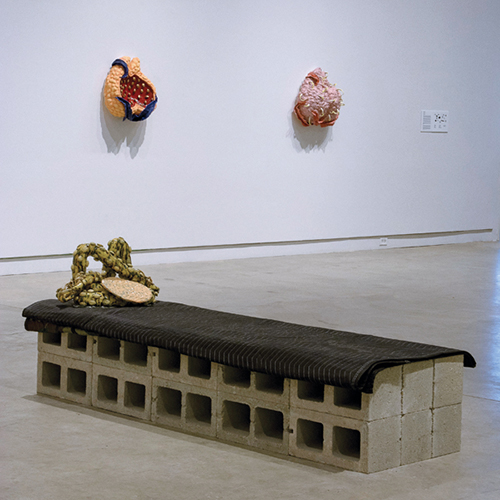 Review: No End in SightA recent group exhibition of sculpture by five artists at Verge Center for the Arts in Sacramento explored material culture, identity, trauma, and belonging.
Review: No End in SightA recent group exhibition of sculpture by five artists at Verge Center for the Arts in Sacramento explored material culture, identity, trauma, and belonging.
- «
- 21
- 22
- 23
- 24
- 25
- 26
- 27
- 28
- 29
- 30 (current)
- »
